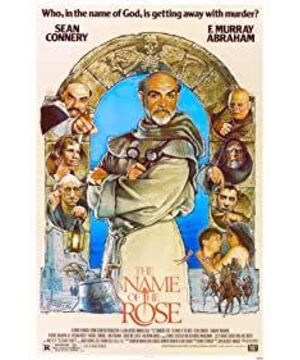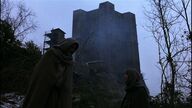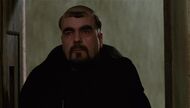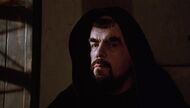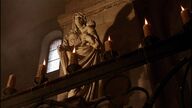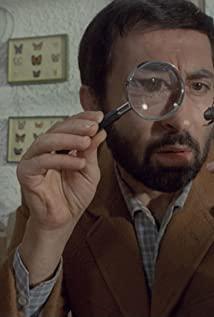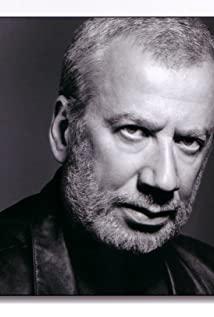After reading several introductions, I personally agree with the relationship between Rose and Rome. I think if you don’t know medieval theology and Christian history, you should have heard of or learned about religious uprisings and the creation of theology, as well as the creation and development of Christianity. With the only knowledge, the fake alms given to the monastery in the movie, the extortionate taxes on the commoners, the greedy money-sucking by the church in the name of God, and the unauthorized transcription of the Bible are also against the teachings. The detailed descriptions all overlap with history, no wonder People call the Middle Ages the Dark Middle Ages. There is a scene where the dean of the church is stroking a solid gold tiara, and the golden gems are a rare bright spot in the dark picture of the movie, but I think it's ironic. At the end, the oppressed people work together to push the judge Bernardo down the mountain, who used torture and made good use of the word of God, which can be regarded as the climax of the movie. The name of the rose is said to be the last name given by the author to satisfy the publisher. In the whole movie, for the girl who doesn't know her name, she is just an existence in Adso's memory of the past. If the whole movie is attributed to a deceased girl, it would be a bit too disappointing for the whole work. Twice the maiden's breasts were exposed to the celibate priests, who spoke of the breasts of Mary the Singer, but thought she was just a filthy soul who had been converted.
Character image:
William of Bakershire, upright and keen, has the mind of a detective, and the truth of the Abbey tragedy is finally revealed through his step-by-step exploration. His opponent, Bernardo, represented an inhumane church that resolutely did not allow the existence of infidels.
In the scene of burning at the stake, such an ugly man as Salvatore the hunchback sang an incomparably beautiful song. Remi Jude Fallaquin, Salvatore's companion, I love this character.
Director: I have long heard how beautiful the filming of "Bing on the City" is, and the scene is spectacular. During the fire in the library, you can feel the director's control over the scene. The cast of this movie is also excellent. Especially the third dead white and fat actor, looking at Adesso's eyes, the eroticism is very well conveyed.
The soundtrack, what is the weird instrument at the beginning, like wind chimes, the cloud music has the original sound, but there is no song sung by the huozi. Also, whenever the chants sound, either the crime has just happened or the crime is happening. Laugh, is it really a sin? Is it far-fetched to get rid of laughing people because laughing blasphemes God? Substitute into history, really want to not be ridiculous. This movie or this work has aroused my curiosity about the Middle Ages, how far the Christian missionaries have traveled, and the power of the Pope even surpasses that of the Emperor. These are all worth exploring. A two-hour movie must not express too much. But not to be called a void.
(Write it here for the time being, and finish it later)
View more about The Name of the Rose reviews


